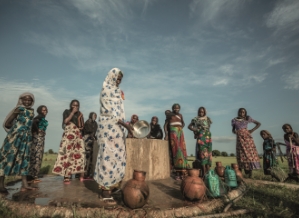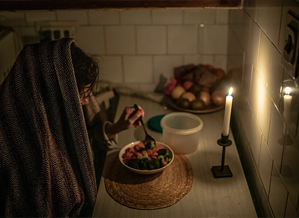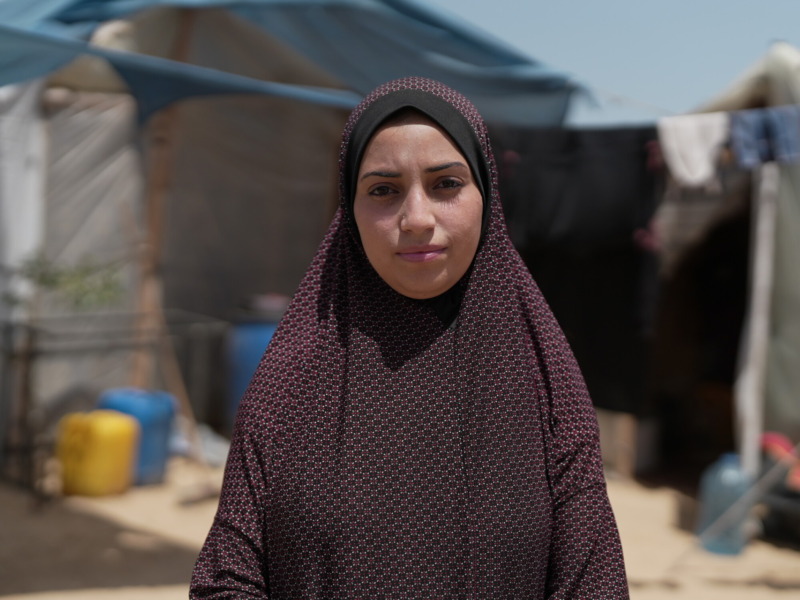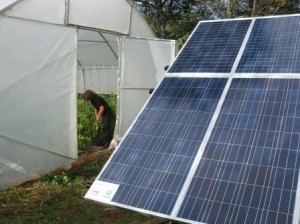
First solar powered irrigation system in BiH
Filipovići, village near Ustikolina, east Bosnia and Herzegovina. Beautiful meadows, green scenery, bordered with woods in autumn colors.
Jasmina and Nezir Šahović have built here six greenhouses, growing different kinds of vegetables, earning for living from their hard work. Water, the source of life, is essential for decent yields from their greenhouses.
This year family Šahović introduced innovative approach to their vegetable growing business. With the assistance from Oxfam office in BiH, the greenhouses of family Šahović and other two families nearby, will be watered with the modern irrigation system on solar power.
The system contains 6 solar panels, with total power of 1 kW, battery for accumulation of energy, water pump which pumps the water from the same creek to the reservoir of 4 000 l in capacity, located above the greenhouses. From this reservoir, by free fall, water flows through the pipe system to the greenhouses and parcels cultivated in the open.
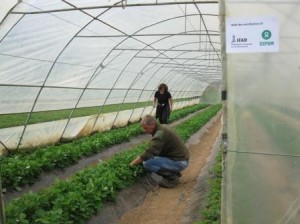
“This is really one of the best things that could have happened to us!”, Jasmina is showing towards the panels enthusiastically. “Now we can rely on constant water supply in our greenhouses. There is no yield without water, we could not grow anything.”
“This year we sold almost all peppers here. People were simply coming to us here, buying 50 -60 kg sacks of peppers at once. Eggplants were growing like mad, from this open parcel of 400m2 we picked over 2 tons of eggplants and there is more, but now (October) the growing is ending, while we also had the first frost this year the other night. That is why the eggplants are so down, you see,” says Jasmina, looking over the parcel with sad looking plants, still full with healthy eggplants.
“So far, we had high costs for fuel we used for the pump. We would spend something around 1000 KM (around 500 €) for oil and gasoline in the season. Thanks to this system, there will be no more fuel cost. We will be able to invest that money in enlarging the production. We have already planted a special kind of wild strawberry up there in one of the greenhouses, giving fruits till late autumn. We have also planted new plants of raspberry, so we expect to harvest them next year. In addition, we plan to raise one additional greenhouse for growing other vegetables,” explained Jasmina.
This is the first solar-powered system for irrigation in BiH. Along with this, similar system, but of half the power, was installed in Bratunac, for irrigation of raspberry fields.
There are no harmful effects for the environment, while the surplus energy produced families can use for their own homes, for simple lighting, for example.
